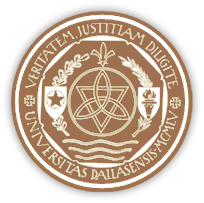The editorial board of Ramify produced Volume 10 both during and immediately after the fallout of the covid-19 pandemic. Furthermore, the 8th Annual Braniff Conference in the Liberal Arts helped start the work behind this issue. The theme of that conference revolved around the cycle of seasons. Both this time in our history and that theme signal a time for return, reflection, and rumination—on the role of beauty in society and the significance of political community for the human person. Such themes Ramify and its editors have dedicated themselves to inquiring into and contemplating since the journal’s inception. We turn to the great texts of the Western intellectual tradition for answers to the most puzzling and profound questions.
The papers collected here offer valuable insight into the human condition on a variety of levels. Volume 10 concerns itself with such ideas as the theological grounding of human dignity, the problem of language and translation, and the purpose of leisure. We hope and hold that reflection upon such topics—with the aid of excellent scholarly literature—may empower our readers to begin anew the quest for the true, the good, and the beautiful.
The collection begins with Dr. Ignatik’s provocative and thoughtful walk-through of John Paul II’s theology of the body. Especially insightful are his remarks on the relationship between human interiority and the changes of the external world, whether they be phenomenological, meteorological, or otherwise.
Next, we then have a trilogy of close readings of great works of poetry. Perhaps no figure in the history of the West stands as a better paradigm of interior knowledge than Homer’s Odysseus. Martin Phillips offers us a closer look into Odysseus’s own naming and its clever (yet occasionally precarious) manifestations. In sharp contrast to Polyphemos, whose fatal failure to hear properly means his demise, Wordsworth reminds us of the excellence of hearing. When we read poetry, we may be tempted to do so silently, but Wordsworth—as Miriam McElvain explains—with his subtle mastery, demands that we renew our appreciation of the senses of sight and hearing and how they ground our relationship to nature.
The next two deal quite explicitly with the human person as a political animal. First, Nicholas Otranto deftly walks us through his reading of Williams’s “This is Just to Say” wherein he highlights the dynamics of interpersonal relationships, especially those romantic in nature. Otranto attends well to the finer details of the poem, e.g., notably the playful use of pronouns. Then we have Wyatt Hill’s adept examination of Strauss’s critique of Machiavelli and the modern problematic. Like Strauss, Hill reminds us that the tradition, with its characteristic exchange of ideas has tools which we may use to address immediate questions of our time.
This edition finishes with a fine rhetorical flourish on the part of University of Dallas’s President, Dr. Jonathan J. Sanford. He wisely guides us back to a virtue that has perhaps been forgotten—namely, docility. He reminds us that docility constitutes an essential characteristic of any good student, that is to say, of anyone who is ready and willing to learn. Dr. Sanford explains that this virtue, often linked to obedience, might more aptly be called a species of humility. It connotes a willingness to submit to the truth and the purveyors of that truth when we encounter them.
The articles we have collected here offer readers abundant opportunities for reflection: on our natures, on the role of beauty in our lives, and on the structure of human community. We publish them in hopes of offering a small, but valuable, contribution to a tradition of inquiry with perennial benefit to human beings.
For the Editors,
Dolan J. Kay
Editor In Chief
September 8, 2023

